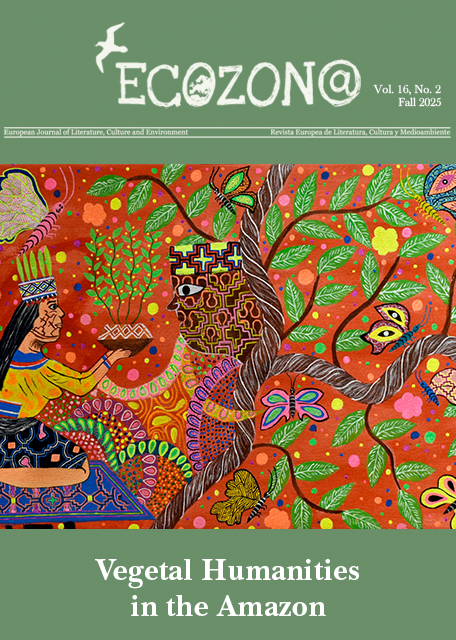Affect, Emotion, and Ecocriticism
DOI:
https://doi.org/10.37536/ECOZONA.2020.11.2.3510Schlagworte:
Affect, Emotion, Affective Ecocriticism, Cognitive Ecocriticism, EconarratologyAbstract
Our relationships to the environments that surround, sustain, and sometimes threaten us are fraught with emotion. And since, as neurologist Antonio Damasio has shown, cognition is directly linked to emotion, and emotion is linked to the feelings of the body, our physical environment influences not only how we feel, but also what we think. Importantly, this also holds true when we interact with artistic representations of such environments, as we find them in literature, film, and other media. For this reason, our emotions can take a rollercoaster ride when we read a book or watch a film. Typically, such emotions are evoked as we empathize with characters while also inhabiting emotionally the storyworlds that surround these characters and interact with them in various ways. Given this crucial interlinkage between environment, emotion, and environmental narrative in the widest sense, it is unsurprising that, from its inception, the study of literature and the environment has been interested in how ecologically oriented texts represent and provoke emotions in relation to the natural world. More recently, ecocritical scholars have started to develop a more sustained theoretical approach to exploring how affect and emotion function in environmentally oriented texts of all kinds. In this article, I will attempt to trace this development over time, briefly highlighting some of the most important texts and theoretical concepts in affective ecocriticism
Downloads
Downloads
Veröffentlicht
Ausgabe
Rubrik
Lizenz
Authors who publish with this journal agree to the following terms:
a) Authors retain copyright and grant the journal right of first publication with the work simultaneously licensed under a Creative Commons Attribution License that allows others to share the work with an acknowledgement of the work's authorship and initial publication in this journal (CC BY-NC for articles and CC BY-NC-ND for creative work, unless author requests otherwise.
b) Authors are able to enter into separate, additional contractual arrangements for the non-exclusive distribution of the journal's published version of the work (e.g., post it to an institutional repository or publish it in a book), with an acknowledgement of its initial publication in this journal.
c) Authors are permitted and encouraged to post their work online (e.g., in institutional repositories or on their website) prior to and during the submission process, as it can lead to productive exchanges, as well as earlier and greater citation of published work (See The Effect of Open Access).










